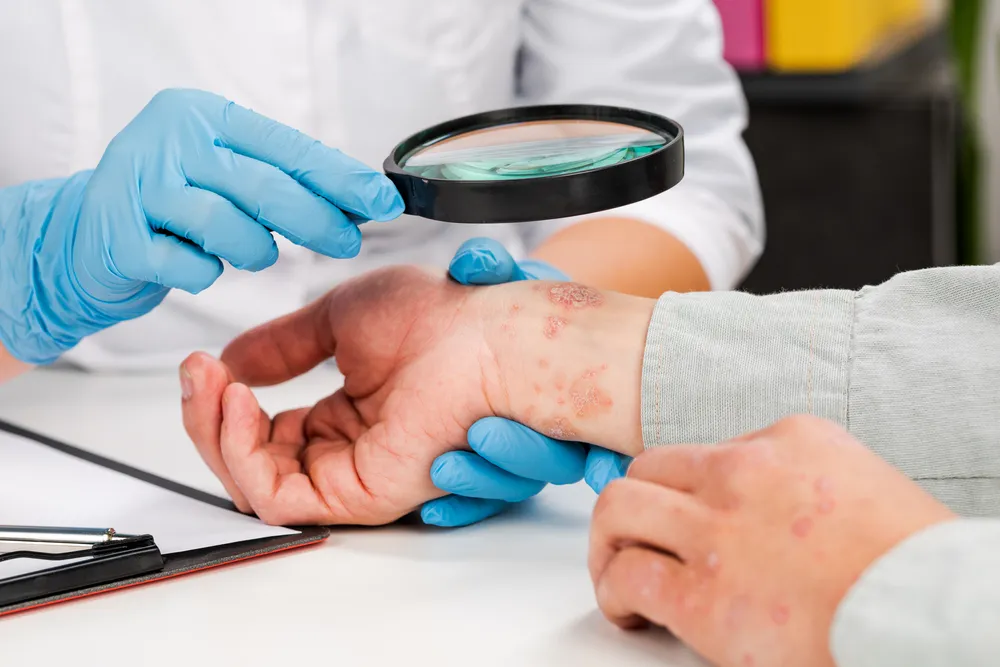Skin allergies are a common ailment affecting many individuals, leading to discomfort and impacting daily life. Understanding the symptoms and triggers is crucial for effective management and treatment. In Gurgaon, where environmental factors like pollution and varying weather conditions can exacerbate skin issues, being informed about skin allergy treatment is particularly valuable.
What are Skin Allergies?
Skin allergies occur when the immune system reacts to a harmless substance as if it were dangerous, leading to skin irritation. These reactions can be caused by a variety of triggers and manifest in several forms.
Common Types of Skin Allergies
1. Contact Dermatitis
Symptoms: Red, itchy rash; bumps, blisters, or dry, cracked skin.
Triggers: Direct contact with allergens like certain metals (nickel), fragrances, latex, or certain plants (like poison ivy).
2. Urticaria (Hives)
Symptoms: Red, raised, itchy welts of varying sizes on the surface of the skin.
Triggers: Reaction to food, medication, insect stings, or exposure to heat, cold, or sunlight.
3. Atopic Dermatitis (Eczema)
Symptoms: Dry, itchy, red skin; recurrent rash.
Triggers: Genetic factors, dry skin, environmental factors, irritants, and stress.
4. Angioedema
Symptoms: Swelling beneath the skin's surface, often around the eyes and lips.
Triggers: Similar to hives, but often due to an allergic reaction to food or medicine.
Diagnosis of Skin Allergies
Diagnosis usually involves a physical examination and a review of medical history. Skin patch tests and blood tests may also be conducted to identify specific allergens.
Skin Allergy Treatment in Gurgaon
1. Avoiding Triggers
The first step in treating skin allergies is to identify and avoid the triggers.
2. Topical Treatments
The application of anti-inflammatory creams like corticosteroids or moisturizers can help alleviate symptoms.
3. Oral Medications
Antihistamines can be effective in reducing itching and allergic reactions.
4. Advanced Treatments
For severe cases, treatments like phototherapy or immunotherapy may be recommended. Consulting a specialist for skin allergy treatment in Gurgaon can provide access to these advanced options.
5. Lifestyle Changes
Regular moisturizing, using hypoallergenic skin products, and managing stress can help prevent flare-ups.
Managing Skin Allergies
Managing skin allergies often involves a combination of avoiding triggers and using the right skincare products. Regular check-ups with a dermatologist can also help in effectively managing the condition.
Conclusion
Identifying and understanding common skin allergies are pivotal steps toward effective management. For residents in Gurgaon, seeking timely skin allergy treatment can significantly improve their quality of life. Remember, each individual's reaction to allergens is unique, and thus, treatment plans should be personalized to meet individual needs.

